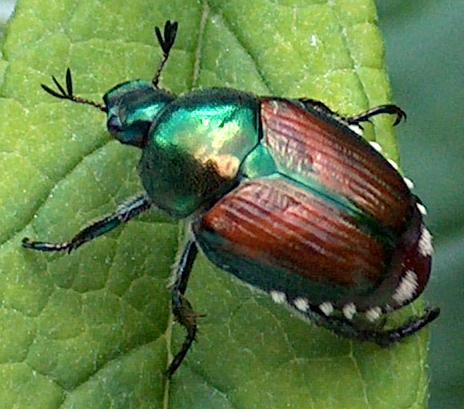It’s Tea & Todes season at Dig Right In! Last week we completed our first applications of beneficial nematodes and compost tea. Customers who receive these services have peace of mind that their lawn and garden are receiving long-term benefits without sacrificing our health or harming the ecosystem.
Organic lawn care takes time and is as much a strategy as a process. Chemical lawn care is instant gratification — apply the chemicals and your lawn is green and weed-free. Chemicals kill the food web in the soil — the fungus, bacteria and beneficial organisms that naturally fertilize the soil. The root of our strategy is reconditioning the soil. We do that with beneficial nematodes and a compost tea we brew ourselves.
Beneficial nematodes— microscopic worms–are Mother Nature’s invisible weapon against soil dwelling insects such as Japanese Beetles, Northern Masked Chafer, European Chafer, Rose Chafer, Fly larvae, Oriental Beetles, June Beetles, Flea beetles, Bill-bugs, Cut-worms, Army worms, Black Vine Weevils, Strawberry Root Weevils, Fungus Gnats, Sciarid larvae, Sod Web-worms, Girdler, Citrus Weevils, Maggots and other Dip-tera, Mole Crickets, Iris Borer, Root Maggot, Cabbage Root Maggot and Carrot Weevils.
Unlike chemical pesticides, beneficial nematodes are harmless to plants, earthworms, people and plants. They enter the pests’ larva, which then causes specific bacteria to emerge from the intestinal tract of the nematode. These spread inside the insect and multiply very rapidly. The bacteria convert host tissue into products which can easily be taken up by the nematodes, killing the soil dwelling insect dies within a few days.

Japanese Beetle. Photo credit: arbordoctor.com
Compost Tea
We have also just completed our first of three applications of our Earth’s Original™ compost tea tailored to the season’s growing conditions. It’s also great for shrubs, perennial plants and vegetable gardens.
This is our custom blend of compost seeped into water so that it can be sprayed on your yard. When sprayed on plant leaves, compost tea helps suppress disease, feeds plants vital nutrients, and helps break down compacted soil.
What About the Rain?
April 2017 was the city’s eighth wettest April on record, causing some people to worry that our organic lawn care won’t be as effective on their lawns. Not to worry! Beneficial nematodes do not live in the sun, which is why we apply them in the evening or on cool days. Rain benefits nematodes by putting them where they belong—in the soil.
As for compost tea, the rain washes the tea’s organisms into the soil, feeding the soil all of these essential nutrients for a greener, healthier and more beautiful yard.

Mike applies compost tea to a lawn in LaGrange.
